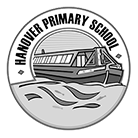Science
Click here to view our Science overview from Nursery to year 6At Hanover our aim is to harness pupils’ natural curiosity about the world to inspire them to pursue scientific enquiry.
Intent
Science is everywhere around us and understanding how it affects our everyday lives is increasingly important. We teach the skills to observe, question, analyse and explain phenomena, make predictions and solve problems.
In line with the National Curriculum, our science teaching offers opportunities to:
- develop scientific knowledge and conceptual understanding in a broad range of units
- develop understanding of the nature, processes and methods of science through different types of science enquiries that help them to answer scientific questions about the world around them
- be equipped with the scientific knowledge required to understand the uses and implications of science, today and for the future.
Our science curriculum is underpinned by five enquiry types:
- Observing over time
- Pattern seeking
- Comparative and fair testing
- Research using secondary sources
- Identifying, classifying and grouping
The curriculum is well structured and sequenced to enable knowledge and skills to be revisited over time. Lessons start with a key question, and are designed so children learn to use equipment, conduct experiments, build arguments and explain concepts confidently. Our pupils are introduced to focus scientists (for example, Ibn Al-Haytham, medieval astronomer and physicist) and taught how they used scientific skills in a variety of specialisms.
At Hanover, we enrich children’s scientific understanding with a range of additional opportunities. These have included practical science workshops from FAB Science; Royal Institute science shows; Black History and women in STEM events; a lunchtime science club; and our own Rooftop Garden where pupils plant, harvest and eat fruits and vegetables. We want our pupils to have the confidence and motivation to pursue and enjoy science in the next stage of their education and lives.
Implementation
While some science units are sequenced to make links with other subjects (for example in the topics How has science changed our lives? for Y3 and How do minibeasts help us? for Y2), others are taught separately. Our curriculum map shows which units are taught at each point in the year.
From Y1-Y6, each science unit is planned so that lessons include
- Recap of knowledge and skills from previous learning
- key vocabulary organised to ensure progression between year groups
- substantive (knowledge) and disciplinary (skills) objectives
- a range of appropriate enquiry types
- opportunities for investigation
- a focus scientist
- enrichment opportunities such as trips, workshops and projects.
Pupils have weekly science lessons. These are planned around a key question, which pupils are challenged to answer by the end of the lesson. These questions also form part of the end of unit assessment, which may be in the form of a quiz, or writing explanations of new learning. The subject leader supports teachers and monitors standards by reviewing planning of units, talking to children with their books, and observing lessons.
We invite scientists into school to explain what scientists do, their area of expertise, and what their current research is about. We have had visitors from Oxford University Plant Sciences department to tell us about the impact of plastic pollution on the island of Aldabra, and from City University explaining the topic of evolution. We also make visits to museums and galleries to support children’s scientific understanding. Visits have included the Science Museum, Natural History Museum, Design Museum, and the Benjamin Franklin’s House Museum.
Our aim is that all children are fully included in science lessons. This may be achieved with the support of an additional adult, pre-teaching vocabulary or concepts, or providing resources such as word banks, sentence stems, discussion frames or visual aids. Children record their responses in a range of ways (diagrams, mind-maps, photographs etc).
Children in the early years develop their scientific understanding through the Understanding the World strand of the EYFS and the characteristics of effective learning. Within these areas of the curriculum, children learn about scientific principles and methods and discover scientific knowledge for themselves through their own investigations using open-ended resources both inside and in the garden. Pupils are encouraged to observe, notice, question, discuss, compare and experiment with the resources around them. They are taught how to look closely at change, patterns, similarities and differences and how to use resources such as information books to find out more. W e use carefully-chosen texts to inform and inspire pupils’ scientific enquiry. Children explore different ways of recording their findings such as through drawing, writing, photographs or models.We also ensure there are opportunities for children to learn in natural environments, and visit a range of places which may provoke scientific understanding (for example, a city farm).
Impact
The impact of our curriculum is that students leave Hanover with the foundations of understanding the world around them. Our science curriculum is planned to demonstrate progression and allow all students to make good or better progress. It also ensures pupils understand the impact of the work of scientists throughout history and from around the world.
At Hanover, we measure the impact of our science curriculum through:
- knowledge recall activities before a unit of work; gaps and misconceptions inform the planning of the next unit
- end of unit assessments and quizzes of skills and knowledge.
The approach allows all children to
- Ask questions, think critically and evaluate the world around them
- Build on their prior knowledge
- Understand new concepts
- Use scientific vocabulary
- Work collaboratively
- Develop of love of learning
- Reason scientifically
- Confidently use a range of science equipment.
“I like how the teachers teach it in a fun way, and my teacher often leaves some time for us to ask questions and say statements, which I think helps me grow and learn.” Y5 pupil

